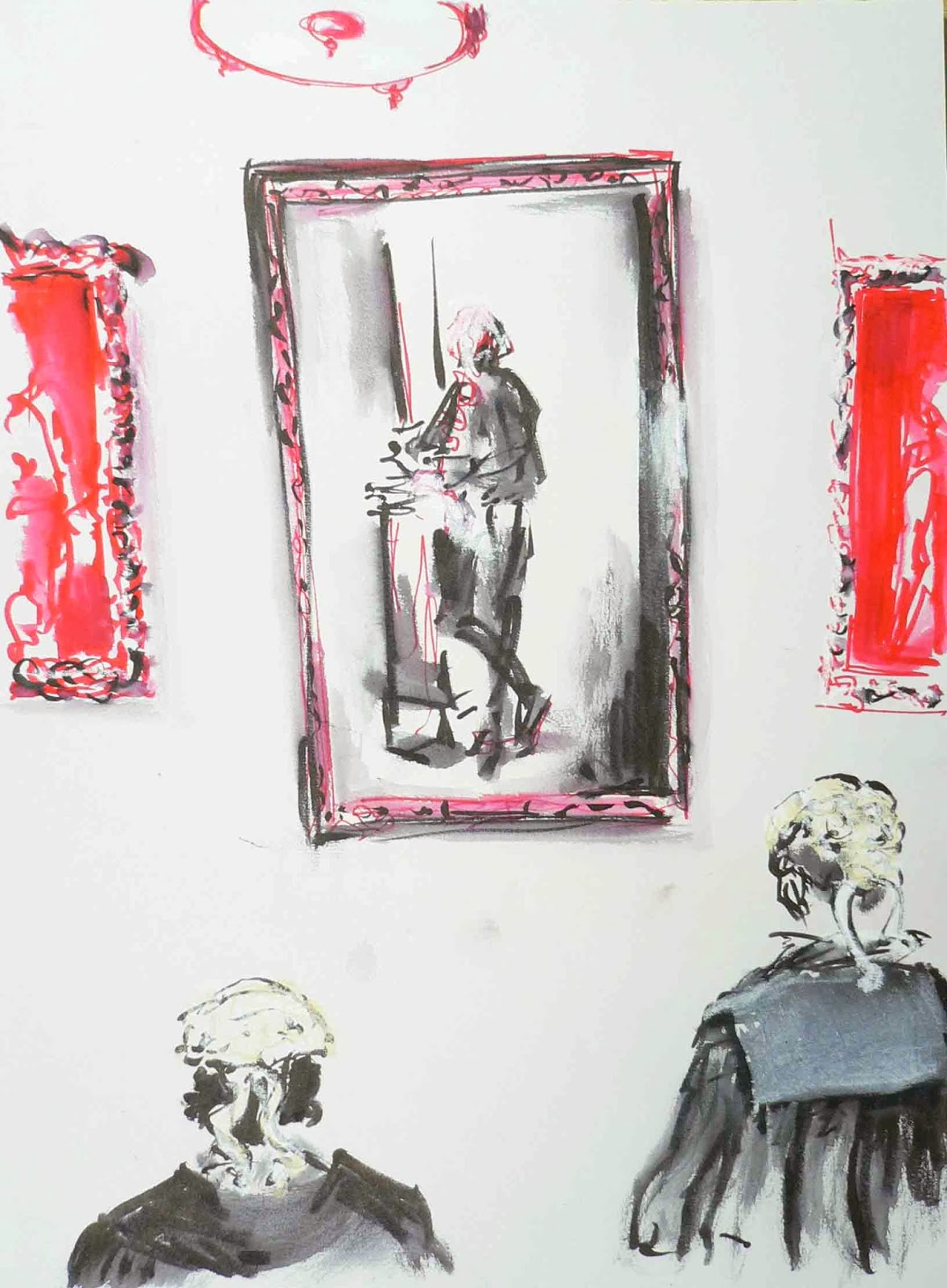 This comes to you in hallucinatory snatches as I enact an operatic deathbed scene with mansize tissues, aka the common cold.
This comes to you in hallucinatory snatches as I enact an operatic deathbed scene with mansize tissues, aka the common cold. We're at the Institut français in South Kensington for an anglo-French-American conference. Academics, lawyers, artists, actors.
The key word is 'performative'. To what extent do lawyers, and the law itself, perform? Asking this question is all the rage.
'Being Wallander is very much an existentialist state.' The perfect sequel to Hamlet for Kenneth Branagh, then.
'What is the function of seduction in these TV crime dramas? Are they akin to sexuality and parenting?'
'Do they educate or obfuscate?'
 'One wants to make work in the form of a virus.'
'One wants to make work in the form of a virus.' 'You cannot represent the boredom of boredom.'
'You have to look to Chekhov for how to do it.'
'If you're complaining about a dog that barks in the night, make sure the judge doesn't have a dog that barks.'
'There are locked courtrooms which haven't been used for years - it's a perfect metaphor for Belgium.'
'Sometimes in court lawyers are so small you don't see them.'
This is not my drawing [left]. It's by someone with a decent line. The ultimate drawing of the effects of legal process: Marie-Antoinette on her way to the guillotine, sketched by Jacques-Louis David. He voted for her execution. Her trial was re-enacted verbatim on stage in the USA: audiences on most nights, not needing a sense of history, let her live.
More pictures if you scroll down.
























